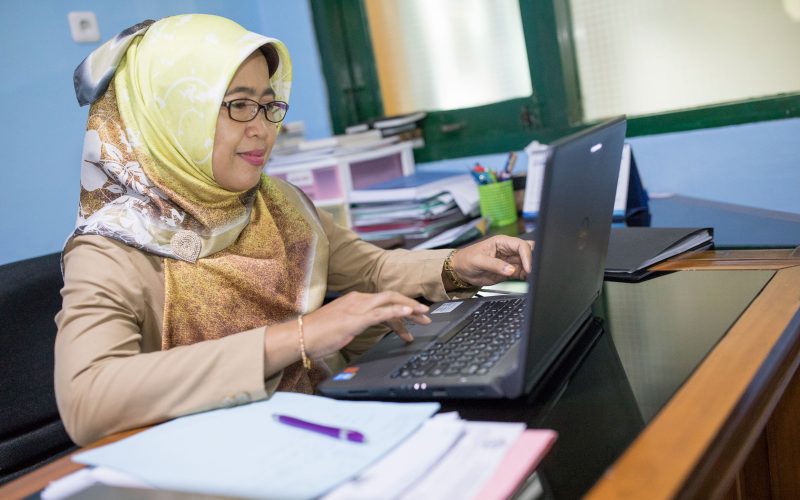
Several conditions precedent to compact funding were identified in the compact. As a condition to Phase II of the Procurement Modernization Project, the GOI agreed to establish procurement as a functional position within the government. This condition was met ahead of schedule, and in support of this significant action, the Procurement Modernization Project developed and delivered 43 procurement and organizational skills training modules. The GOI also committed to continue the reforms to regulations governing the procurement of PPPs and sustainable public procurement, both of which were accomplished during the compact term.
The Procurement Modernization Project was also able to successfully realize national-level reforms, concurrently with the continued development of LKPP as an institution. However, the progress at sub-national levels was even greater, with several local governments passing regulatory reforms and institutionalizing the practice of public procurement through local parliament legislation, providing some institutional security for the newly-minted procurement professionals as they further developed their practice.
In the Nutrition Project, the condition precedent to continued funding in the compact related to the institutional home of the GOI-implemented Generasi project. This was met ahead of schedule and the change in the project’s structure formed an integral part of the GOI’s transition to further fiscal decentralization through the “Village Law.” The project ultimately produced a set of guidelines to assist with the implementation of nutrition and sanitation activities using this new funding structure, supporting the sustainable transition to village-led management of funds.
Several reforms were identified as necessary for the successful execution of the Green Prosperity Project, particularly with respect to feed in tariff (FIT) changes and regulations associated with electricity project development such as the consolidation of conflicting sector master plans and the streamlining of the application process for Power Purchase Agreements (PPAs). These conditions were either not met or only partially met. While the FIT for mini-hydro was adjusted during the compact term, industry opinion was that these provided a disincentive for PLN to buy power from independent producers. Subsequent regulations raised the FIT more than 30 percent above PLN’s average cost to purchase power and the government has not provided increased subsidy cover to PLN to cover its losses. With further changes in Ministry of Energy and Mineral Resources leadership, changing FIT regulations continued to be a source of uncertainty. Ultimately, with the restructuring of the GP Facility described elsewhere in this report, the reforms called for in the compact proved much less relevant. However, both are symptomatic of the troubled regulatory and policy environment for the energy sector in Indonesia. Meanwhile, reforms that had not been anticipated at compact signing, such as the adoption of improved spatial planning guidelines by the Ministry of Home Affairs that were consistent with the lessons from implementation of PLUP activities in multiple districts across the country, proved to be much more relevant and successful in terms of achieving the GP Project’s goals of improving transparent decision-making around land use.

